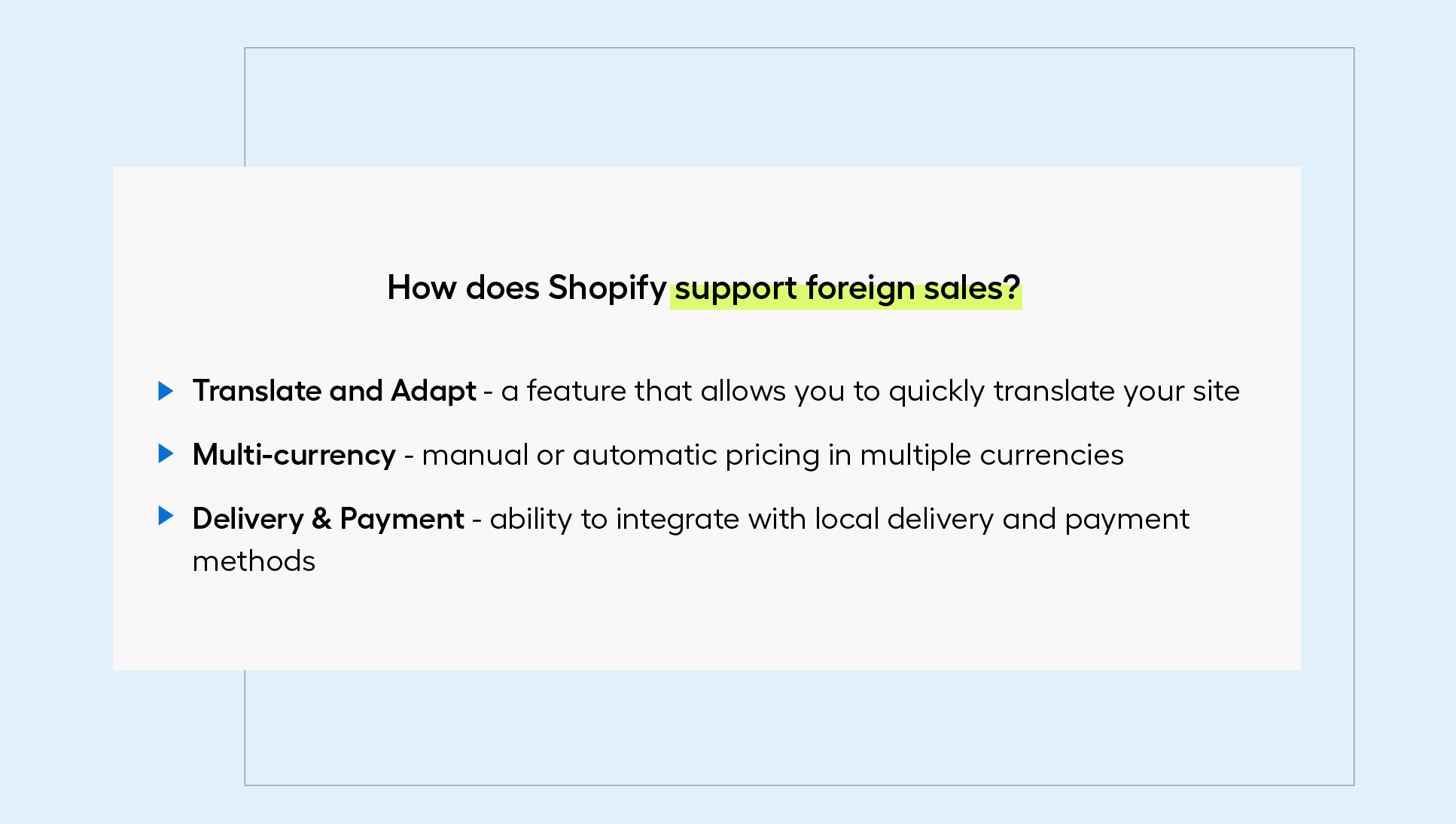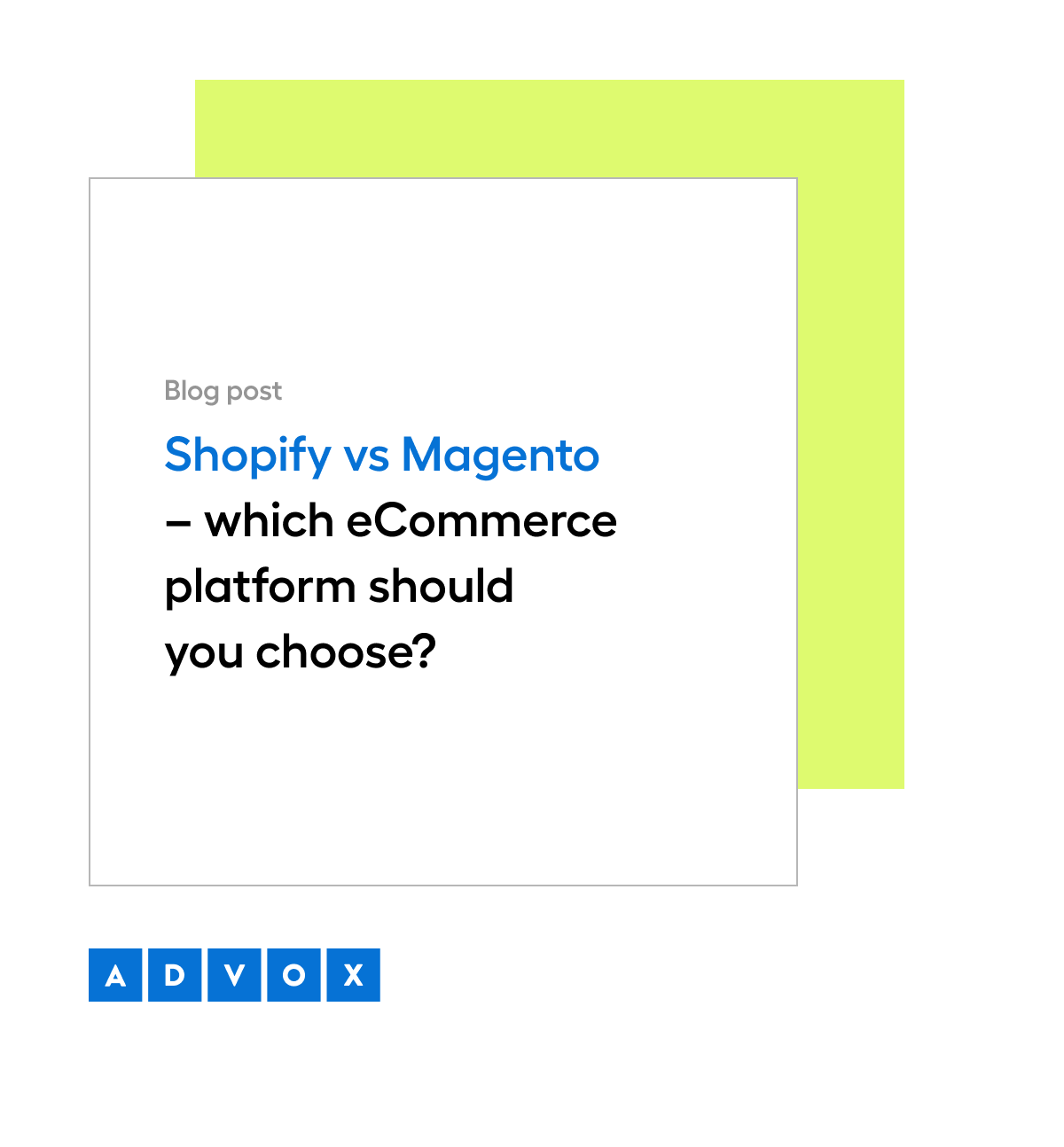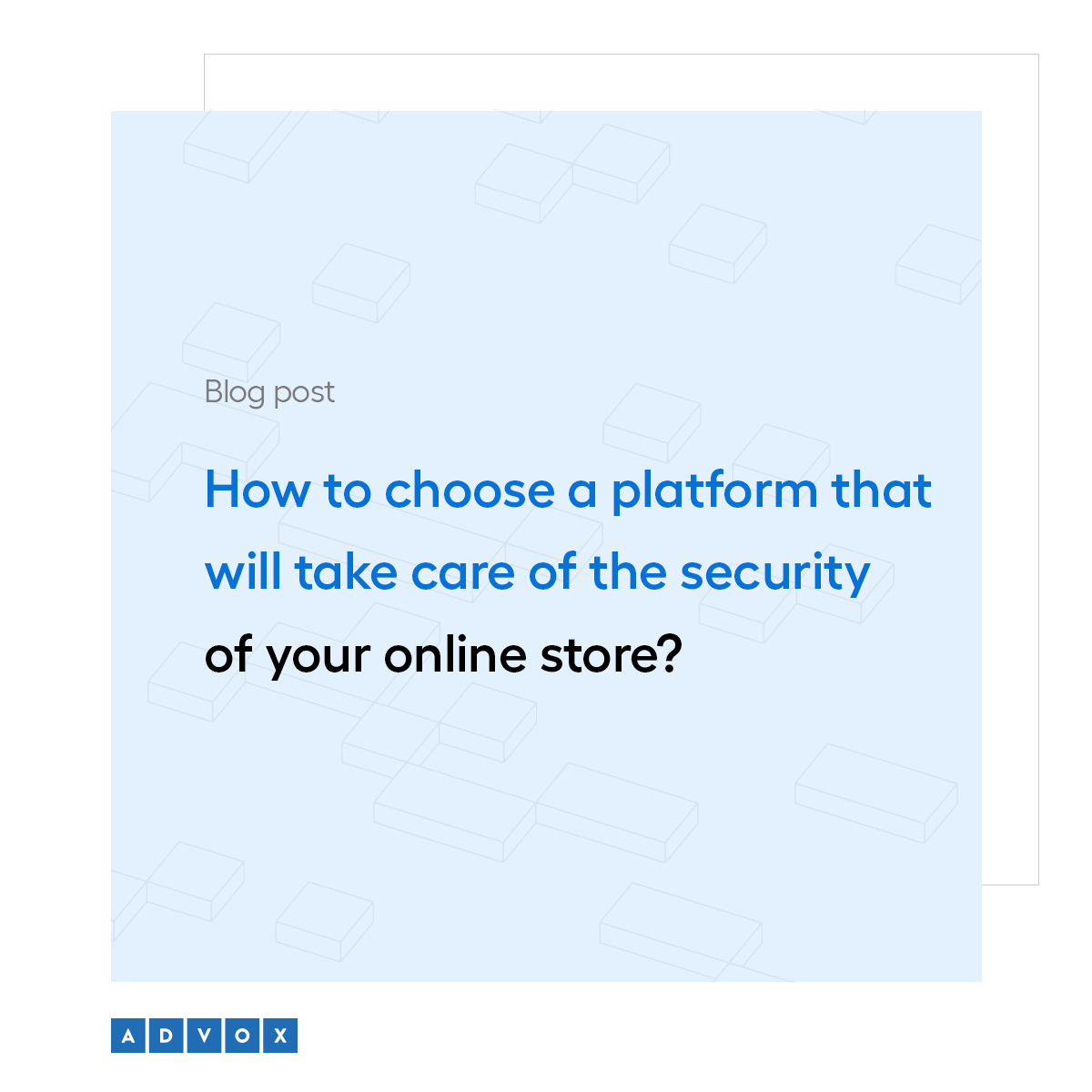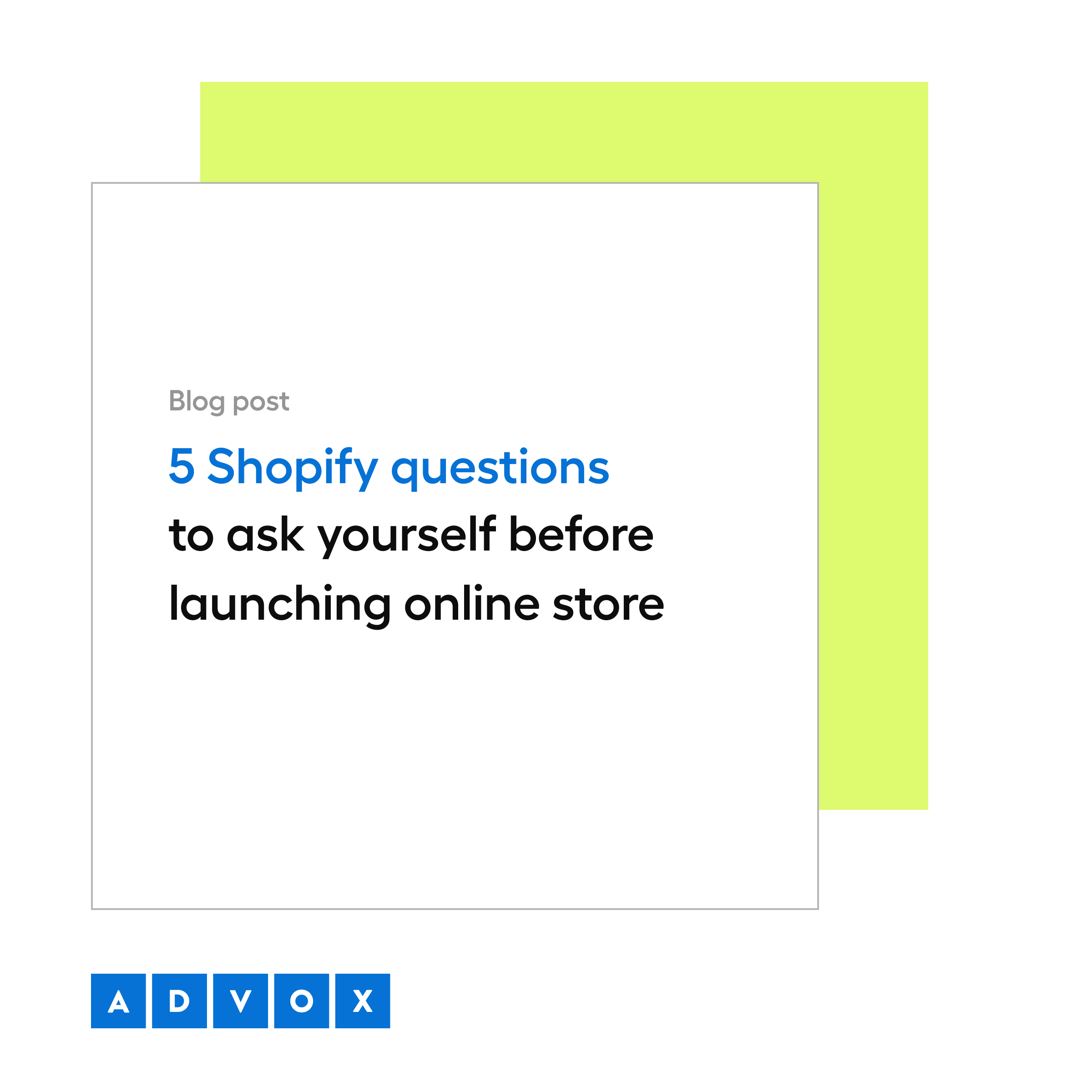Table of contents:
- I have a Shopify store - what's next?
- 1. What are the integration possibilities between Shopify and the other tools and services I use (e.g., CRM systems, marketing tools, payment gateways)?
- 2. What possibilities and support does Shopify offer for international expansion?
- 3. How much can I customise the appearance and functionality of my Shopify store?
- 4. What marketing and SEO tools does Shopify offer to help promote my store and increase traffic?
- 5. What sales reports and analytics does Shopify offer to help monitor performance and make business decisions?
- Customise the Shopify platform to meet your needs
Have you decided to start selling online using Shopify and plan to grow your business on this platform? If so, it's crucial to understand the full potential of this system to make the most of its capabilities and avoid pitfalls that could hinder your success. In this article, we'll answer five fundamental questions that will help you assess whether you're truly leveraging this platform effectively and whether you're ready for further growth. Read on to discover the full potential of Shopify!
5 pytań o Shopify, które warto sobie zadać przed startem sklepuP.S. If you're still considering whether Shopify is the right choice for you, check out our previous article titled: “5 Questions to Ask Yourself Before Starting a Shopify Store” to help you decide if this solution is the best fit for your needs.
I have a Shopify store - what's next?
Shopify is a platform that allows you to start selling online virtually "from scratch." The basic package, Shopify Basic, is an ideal choice for new entrepreneurs taking their first steps in e-commerce. However, as your business begins to grow, you might find the need to expand your store's functionality to meet the increasing demands of the market and your customers. Shopify not only offers more advanced packages like Shopify or Advanced Shopify, but it also allows you to enhance the platform with individual plugins and integrations. This way, you can tailor your store to specific needs, introduce new features and tools, and effectively manage a growing number of orders and customers. Whether you're looking for better analytics tools, advanced payment options, or CRM integrations, Shopify provides the flexibility and scalability that will allow your business to grow dynamically.
What are the integration possibilities between Shopify and the other tools and services I use (e.g., CRM systems, marketing tools, payment gateways)?
Shopify offers extensive integration capabilities with various tools and services. With the vast library of plugins and add-ons available in the Shopify App Store, you can easily find applications that support your store across multiple sales channels, social media integrations, product management, store design, order fulfilment, shipping, and marketing. Installing these plugins is straightforward (simply download the plugin from the store and install it on the platform), making the process of expanding your store much smoother.
If you require more advanced functionality, Shopify allows integration with other applications and systems via the Shopify Rest API. Although this approach involves some development work (and specialised knowledge), it enables you to create a more extensive and personalised store. By leveraging both integration methods, you can create an environment tailored to your specific needs. Examples of integrations include:
- Enterprise Resource Planning (ERP), Warehouse Management Systems (WMS), and Customer Relationship Management (CRM) systems - these integrations enable optimal management of inventory, finances, customer data, and other aspects of your business.
- Marketing tools - these help automate marketing campaigns, manage ads, and analyse the effectiveness of your marketing efforts.
- Data analytics tools - these assist in monitoring and analyzing sales data and other key business indicators.
- Payment gateways - Shopify works with numerous payment providers, making it easy to process transactions in various currencies and payment methods.
What possibilities and support does Shopify offer for international expansion?
Shopify provides extensive support for stores planning to expand into international markets, making it easy to handle multiple currencies, languages, and international payment methods. A key tool is the built-in Translate and Adapt functionality, which allows you to translate your pages into any language. This tool not only translates text but also considers cultural nuances, enabling better alignment of content with local customer expectations.
Another essential feature is multi-currency support, allowing customers to view prices and make payments in their local currency, significantly improving the shopping experience and increasing the likelihood of completing a purchase. Sellers can set prices in different currencies manually or use automatic conversion based on current exchange rates.
Additionally, Shopify allows integration with multiple international payment methods, which is crucial because consumers are more likely to complete transactions when they can use familiar and trusted payment methods. Shopify also supports an extensive range of shipping methods, enabling the selection of the most optimal and cost-effective shipping options for different countries. These features enable online stores to effectively serve customers from various parts of the world, adapting to their preferences and needs.

How much can I customise the appearance and functionality of my Shopify store?
Shopify offers great flexibility in customising the look and functionality of your store. First, the platform provides a wide range of free and paid themes that can be easily modified using the drag-and-drop editor. This tool allows you to customise various elements of your site, such as colours, fonts, layout, and images, without needing any programming skills.
For those who require more advanced customizations, Shopify provides access to HTML, CSS, and Liquid—Shopify's own templating language. This allows developers to make advanced changes to the store's appearance and functionality, creating custom layouts, visual effects, and interactive features.
In short, Shopify offers both simplicity for basic customizations and advanced capabilities for more complex projects. This enables store owners to create unique and functional websites that meet their specific business needs. However, it's important to note that there may be some limitations. If you need a highly distinctive design (e.g., a custom menu), it might be worth considering a platform with open-source code that allows for full modification.
What marketing and SEO tools does Shopify offer to help promote my store and increase traffic?
Shopify provides a comprehensive suite of marketing and SEO tools that can significantly help in promoting your store and increasing website traffic. Among the many tools available, which can be installed directly from the Shopify App Store or integrated with the platform via API, you’ll find solutions supporting email marketing, loyalty campaign creation, customer review management, and social media integration.
In addition, Shopify has built-in SEO tools that allow better alignment of content with search engine guidelines. Some optimizations are performed automatically, such as adding tags to pages that prevent duplicate content from appearing in search results. Additionally, Shopify users can take advantage of features like:
- editing title tags, meta descriptions, and URLs for individual pages.
- adding alt text to images, which improves visibility in image search results.
- creating and managing XML sitemaps, which help search engines index your store’s content.
These tools make it easier for Shopify store owners to optimise their sites for search engines and conduct effective marketing campaigns, which can ultimately lead to increased traffic and sales.
What sales reports and analytics does Shopify offer to help monitor performance and make business decisions?
Shopify Analytics is a native tool available to all merchants using the platform. Shopify Analytics provides a variety of reports and data that help monitor sales performance and make business decisions. The platform includes over 60 pre-built reports, with the option to customise them to your specific needs. This allows you to:
- see how your store is performing compared to competitors.
- track sales across different marketing channels.
- manage inventory levels.
- filter results by customer behaviour, sales, marketing, and customer acquisition.
If you require a more advanced monitoring system, such as when selling in multiple markets, managing a large product catalogue, or dealing with seasonal offers, it may be worth integrating Shopify with external analytics tools like Google Analytics, Polar Analytics, or Crazy Egg. These tools offer more detailed and advanced analyses, which can be crucial for more complex business operations.
Customise the Shopify platform to meet your needs
Shopify is an incredibly flexible tool that can adapt to the specific needs of your store. The platform offers a wide range of features, plugins, and integrations that allow you to expand your store and tailor it to the evolving demands of the market. However, it’s important to remember that Shopify is a SaaS (Software as a Service) platform with closed-source code. This means that while there are extensive customization options, it doesn’t allow for full access to the source code, unlike open-source platforms.
By choosing Shopify, you gain stability, technical support, and ease of use, but you should be aware of certain limitations regarding full customization. Whether Shopify is the best solution for your business should take these aspects into account, especially if you require more advanced and custom features.
Still have doubts? Need professional support and advice on your sales platform? Contact us!







